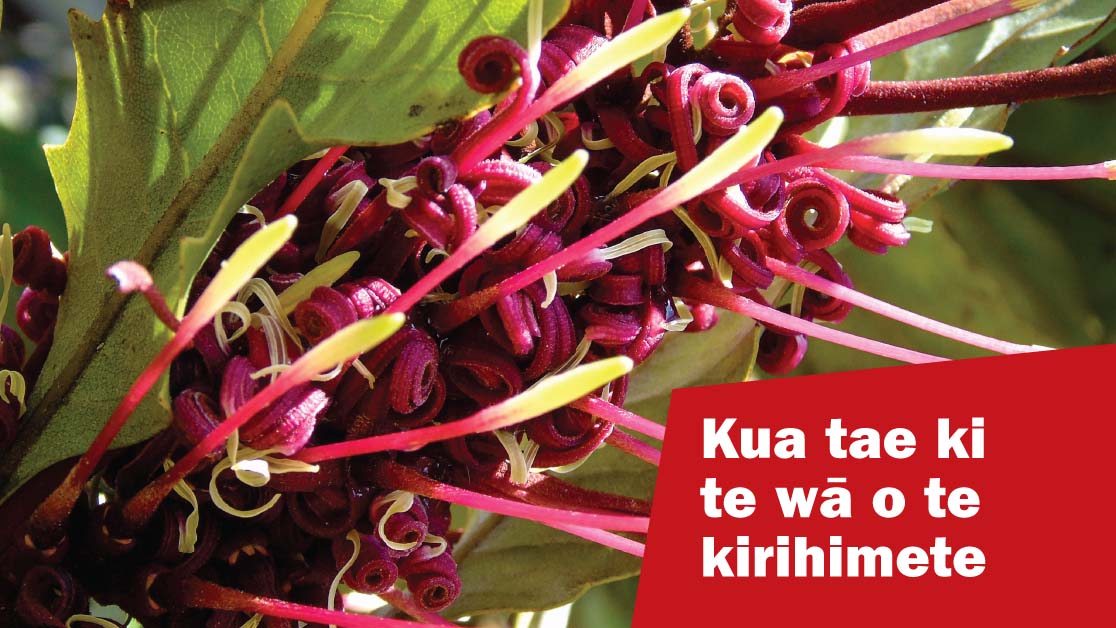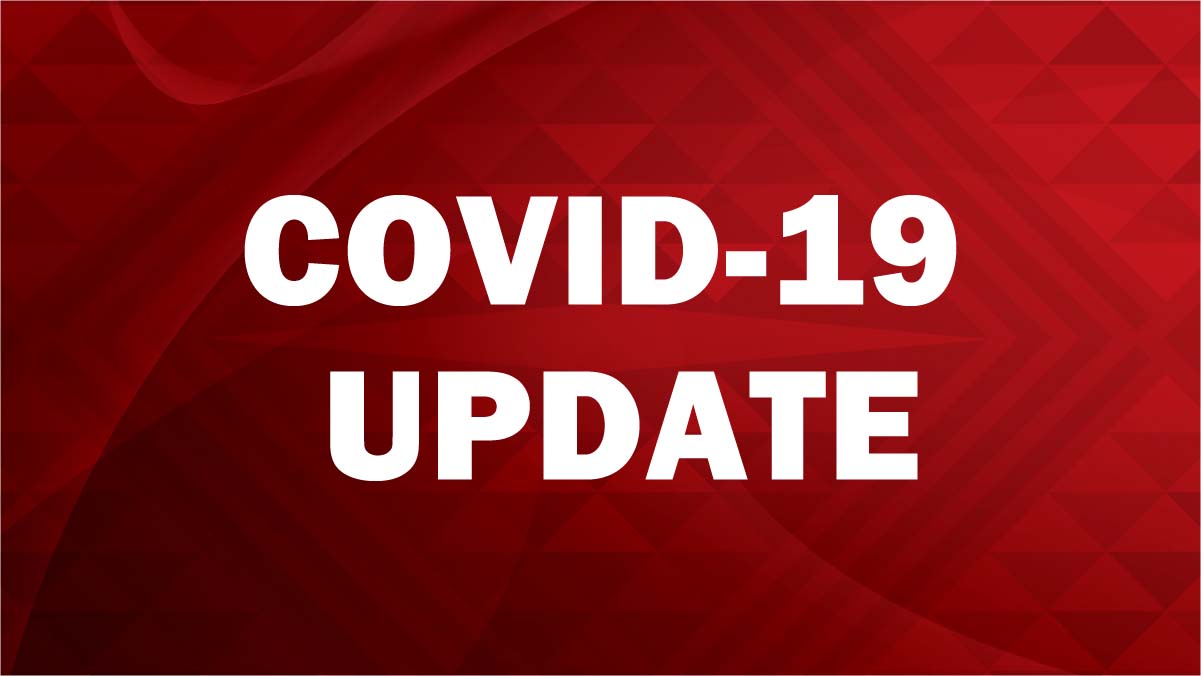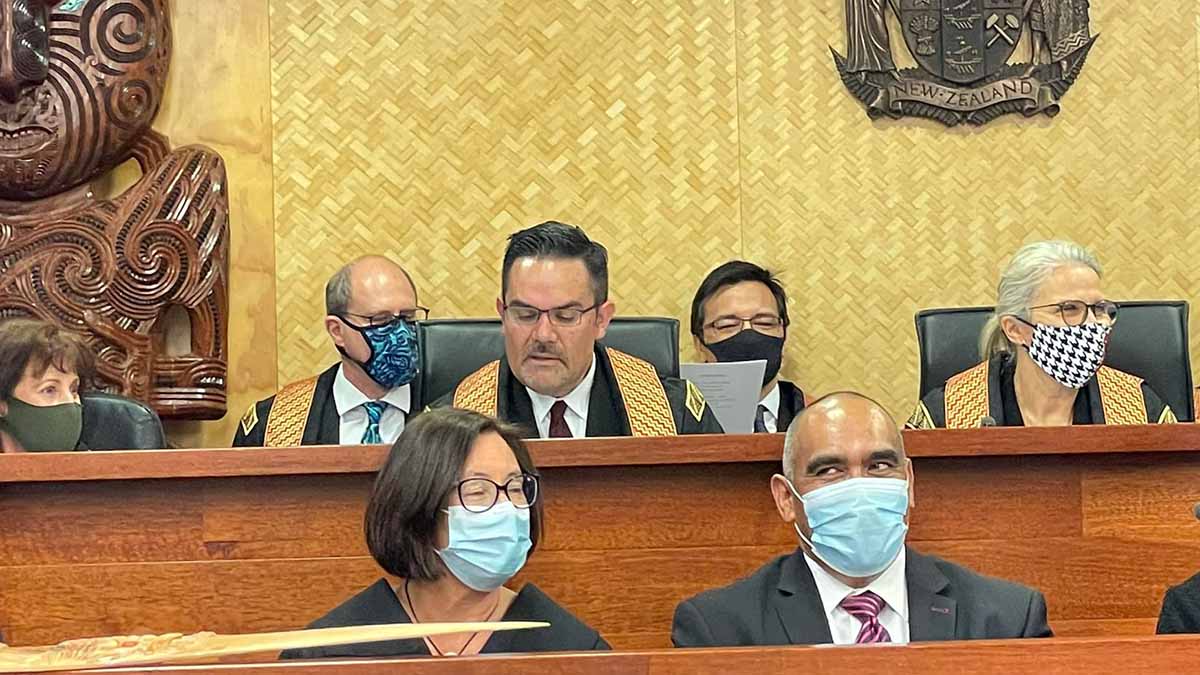Te Hono o Mataatua ki Te Moana-nui-a-Toi Pandemic Response
Te Hono o Mataatua ki Te Moana-nui-a-Toi*
Meeting of the Confederated Tribes of Mataatua at Mataatua Whare, Te Manuka Tutahi Marae, in Whakatāne on Tuesday, 23 November and Wednesday, 24 November 2021.
The Iwi collective that comprises Te Hono o Mataatua ki Te Moana-nui-a-Toi (“Te Hono o Mataatua”) convened a meeting on Tuesday 23 November 2021 and Wednesday 24 November 2021 at Te Mānuka Tūtahi Marae in Whakatāne. The express purpose was to agree and adopt a collective response to maintain the protection of our iwi and communities from the (Covid) pandemic within Mataatua.
On the strength of our enduring kinship ties, Te Hono o Mataatua affirmed we will act as one voice on the matters raised forthwith; and continue to provide strong leadership as we implement localised Iwi-Māori led solutions that will have collective residual benefit in respect of the protection and health of our iwi and communities.
Members of Te Hono o Mataatua gathered to discuss health and wellbeing; and exchange strategic measures and actions with a particular focus on the pandemic.
Te Hono o Mataatua is determined to contribute to the health, wellbeing and safety of our whānau, hapū and iwi, both within their respective rohe and beyond, through our collective strength. We welcome all efforts from our marae, our schools, and our communities to support our continued resolve to protect our whakapapa. The discussions strengthened our unity of purpose and desire to cooperate as an effective collective of Mataatua iwi during this global health pandemic.
The observations from the meeting are as follows:
1. Me hangaia he huarahi e taea e Mataatua te mahitahi me te tiaki i te mana Motuhake o Mataatua.
We agree unanimously that urgent Iwi-Māori led action is required to respond to the rising cases of the pandemic in the Mataatua rohe. The role of iwi and Māori-led leadership from within our own communities is a critical element in any effective response to the pandemic. Collaborative action between and on behalf of Māori communities within our rohe is of vital importance. The members discussed the leadership and collaborative role that the iwi of Mataatua have taken in the past to address issues of significance. Te Hono o Mataatua noted how Mataatua iwi took the lead in the development of the 1993 Mataatua Declaration on Cultural and Intellectual Property Rights, which influenced the drafting of the United Nations Declaration on the Rights of Indigenous Peoples (UNDRIP).
We remain deeply concerned that despite pockets of collaborative efforts between community agencies, there remains a disconnect at the community level which is having a detrimental impact on particularly small, isolated Māori communities within our rohe. This disconnect is exacerbated by a lack of shared data within and across the rohe to inform planning and response measures.
Further, we remain deeply concerned the views of Te Hono o Mataatua are missing from the government’s decision making that perpetuates a one-size-fits-all scenario. The members reaffirmed our commitment to act with haste and urgency to appropriate the necessary resources and support required from the Government to enable an iwi-Māori led response to better protect the health and wellbeing of our communities. Te Hono o Mataatua strongly condemns any actions or omissions of the Crown that deny us the right to protect the wellbeing of our iwi members.
Te Hono o Mataatua express our strong support for iwi who exercise their right to action their own responses to the impacts of the pandemic in their communities, and deal with the effects from within their iwi, with any unwanted interference from external parties. All members agreed that our immediate focus is on implementing response plans to manage the impact and risk of the pandemic spreading within our communities.
2. Mai te rahi ki te iti, mai te iti ki te rahi me whakahaumarutia rātou ahakoa ko wai ahakoa kua werohia, kaore rānei
The pandemic does not discriminate, and anyone is susceptible to disease and potentially death. We acknowledge the efforts by Māori and iwi organisations to increase the vaccination rates amongst Māori and other community members within our rohe. We strongly condemn any individual or group that spreads misinformation about the effectiveness of vaccines.
We remain deeply concerned that misinformation has created mistrust amongst some members of our whānau and iwi, which is preventing them from making an informed decision to vaccinate. We encourage whānau who are yet to be vaccinated to consider the following ‘Kia kore ai e pūea ake te riri. Kia mau ki te aroha me te manaakitanga’.
We commend the efforts of our marae who are considering how to support unvaccinated whānau who wish to participate in our marae activities, and agree that if closure of marae is necessary, manaaki and aroha ki te tangata would prevail. The tikanga at marae would be adapted by each marae to ensure the safety of its people are maintained without compromising the values and principles of the marae, hapū and iwi.
3. He mana tō ngā iwi ki te whakahaere i a rātou mahi.
We acknowledge that the levels of mana are derived from iwi, hapū and whānau. Strong community leadership and wisdom exists and proliferates amongst the iwi of Mataatua. We pay tribute to the leadership, guidance and support provided to date in the planning and development of solutions towards improving the health and wellbeing of our iwi and communities.
Members respect the crucial contribution and role of Māori and iwi organisations who have experience and knowledge to implement appropriate initiatives to lessen the impact of the pandemic.
We are fully committed to the development of a Mataatua and iwi-led strategic plan to proactively manage
co-ordinated responses in the event of a community outbreak of the deadly virus. We discussed and agreed that a collective and coordinated response is both an effective and efficient use of our skills and resources; and will achieve greater outcomes than those purported solutions derived outside the iwi.
We discussed the issue of current government response plans that are bereft of our contribution, and note the challenges associated with state-imposed interventions on our communities that are not of our making. We reviewed the design of our own iwi-led plans and agreed on measures that will necessarily involve bespoke solutions for each of our respective rohe that take account of our various and specific needs.
4. Kei konei kē te mate urutā
Grave concerns were raised about the spread of the pandemic throughout Mataatua communities and the serious implications of increasing positive case numbers.
We reviewed the current resources and support available to manage a community outbreak of the virus and discussed that whilst iwi are best positioned to coordinate necessary resources for its hapū and communities, we remain deeply concerned there is a total lack of acknowledgement by agencies that a by iwi, for hapū and whānau-led approach is necessary.
We will continue to advance the rights of hapū and communities to meet their obligations to provide support to alleviate the impact of the virus upon whānau.
We reaffirm our right to maintain the protection of our whakapapa and urge the Government to provide immediate infrastructure and resources necessary to support an effective iwi-led response to managing the impacts of the pandemic in our communities.
We strongly urge immediate action by government agencies to support iwi to coordinate necessary resources for our hapū, and communities. We will continue our requests to be provided with access to relevant data to support our respective response efforts.
5. Ngā kōrero pōraruraru mō ngā whānau
Te Hono o Mataatua expressed strong concerns about the role that doctors in mainly Māori communities in Mataatua have either directly or indirectly influenced whānau to not explore the benefits of being vaccinated.
Members concurred that is detrimental to the health and wellbeing of whānau when a whānau members’ ability to make fully informed decisions about keeping themselves and their whānau alive, safe, well and happy is impaired by those with influence.
6. He huarahi ki te ao marama?
There is concern about the impact of the pandemic on small iwi in isolated communities and the lower uptake of vaccinations by whānau at vaccination clinics. We commend the efforts of Māori health providers, both regionally and locally who have been active in the community, including those iwi who provide iwi health services.
We encourage trusted iwi-Māori leaders and influencers to continue their ongoing efforts to support whānau members to make informed decisions about being vaccinated. We urge the focus of these efforts remain on protecting the whakapapa of Mataatua - the most vulnerable in our communities; our tamariki and mokopuna under the age of 12 who cannot be vaccinated; and our future uri who will be affected by the ongoing impact of the virus.
7. Ko te mate urutā kai te whakararuraru i ngā tikanga me te kawa o te marae
Discussion was held on the ongoing and real impacts upon tikanga Māori and the consequences of this on ‘te wairua o Mataatua’. The members discussed how tangihanga processes and tikanga have been greatly impacted and note the concern expressed by marae, hapū and iwi about the many compromises that whānau have had to endure.
The members expressed further concern about the
inter-generational impact of the pandemic on the kawa of the marae; kawa of the tangihanga; and commended the extensive efforts that hapū, marae and iwi have taken to accommodate their whānau.
It was acknowledged that differences exist across hapū, marae and iwi within Mataatua in regard to tikanga Māori, and that these differences are acknowledged as a strength with the mana of each respective hapū, marae and iwi to be maintained. Overarching principles common to all are noted, however we acknowledge that the mana of hapū, marae and iwi is paramount.
8. Kotahi te karanga mo ngā Rangatahi
The rangatahi from the meeting were commended for demonstrating a clear and strong resolve to secure a future for ngā uri whakaheke. Pūrakau, pakiwaitara, and stories pertaining to iwi were utilised as examples of Māori history that were used to espouse fear, misinformation and conspiracies such as in the kōrero pertaining to Te Tahi o Te Rangi.
The rangatahi reminded the members of kōrero about Irakewa, Toroa, Wairaka and Muriwai - all eponymous ancestors who visualise our place as Mataatua, who saw the landmarks or tohu that brought our ancestors to this place in our rohe. The emphasis of this kōrero was to encourage rangatahi to voice their concerns and utilise their power, skills and knowledge to inform a way forward for Mataatua.
We affirm our abiding commitment to the notion of collectivism, and to the rich tapestry of our history, our whakapapa and our place in the world. We condemn any notion of individualism and implore our whānau to maintain the strength of our collectiveness as whānau, hapū and iwi.
We agree the sentiments expressed by the collective voice of rangatahi who made a resounding plea to all rangatahi within Mataatua, ‘our iwi needs you, your waka Mataatua needs you’.
Recommendations
Te Hono o Mataatua have discussed the key challenges facing our respective iwi and communities in respect of the pandemic, and agree the following recommendations:
1. Me hangaia he huarahi e taea e Mataatua te mahitahi me te tiaki i te mana Motuhake o Mataatua. We note the strength of our collective determination; and agree to continue to exercise mana motuhake in all matters pertaining to the protection and wellbeing of our iwi and communities.
2. Mai te rahi ki te iti, mai te iti ki te rahi me whakahaumarutia rātou ahakoa ko wai ahakoa kua werohia, kaore rānei. We agree to urgently implement a Mataatua-centric pandemic response strategy that incorporates Te Kauwae Runga (spiritual or celestial) and Te Kauwae Raro (physical or terrestrial) and to ensure characteristics of our worldview are prioritised in the development of the strategy.
3. He mana tō ngā iwi ki te whakahaere i a rātou mahi. That Government notes our right and obligations to protect our iwi and communities and agrees to adequately resource an iwi-led response to the pandemic. The iwi will determine who is best to partner with them to implement their plans.
4. Kei konei kē te mate urutā. That both the Mana and Mahi levels within iwi are adequately resourced to manage their own solutions for their respective communities.
5. Ngā kōrero pōraruraru mō ngā whānau. We resolved that iwi will support each other to support whānau to make informed decisions about being vaccinated and agree that those who use their power and influence to create bias and prejudice that impact upon whānau making informed decisions about their wellbeing should be censured.
6. He huarahi ki te ao marama? We agreed to continue efforts to support whānau to be vaccinated as soon as possible, and to emphasise the need to particularly protect tamariki and those vulnerable within our whānau.
7. Ko te mate urutā kai te whakararuraru i ngā tikanga me te kawa o te marae. We agree to develop a high-level set of principles to guide ongoing discussions in relation to the impact on tikanga and kawa and we acknowledge the right of respective hapū and marae to maintain mana over their decisions to enact any changes.
8. Kotahi te karanga mo ngā Rangatahi. We agree with the concerns expressed by our rangatahi and that their perspectives and solutions will be interwoven into any strategies we develop as a collective. We acknowledge our rangatahi who will carry our agreed solutions forward for our descendants; and who will bear the greatest burden of the impact of the pandemic.
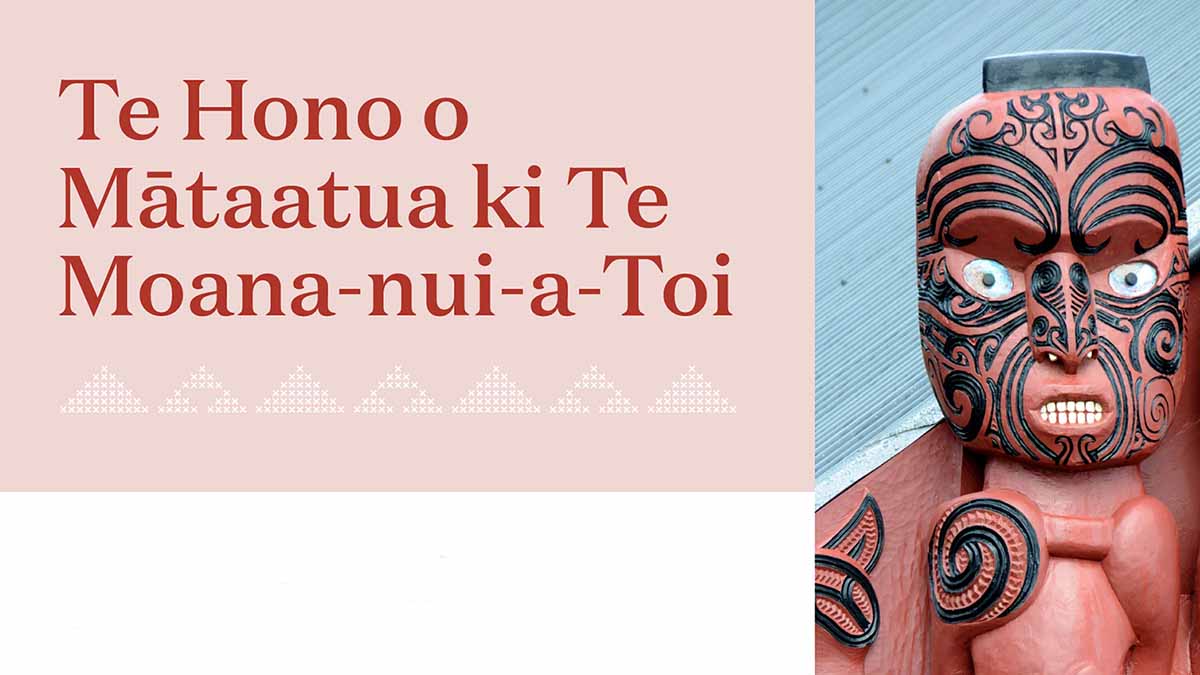
Pou of Mataatua Whare
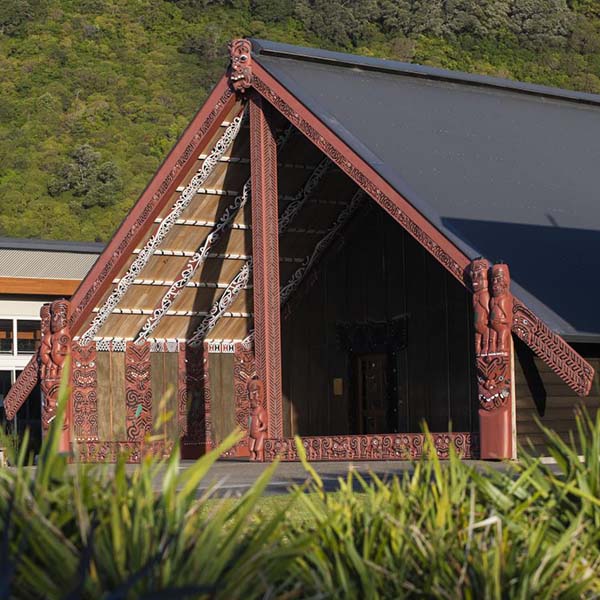
Mataatua whare, Te Mānuka Tūtahi marae
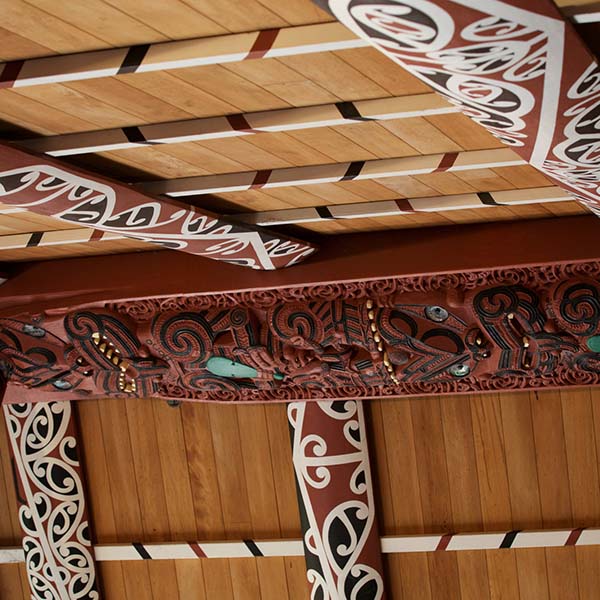
Internal mahau, Mataatua whare
Endorsed By
Tā Hirini Moko Mead
Convening Chair of Te Hono o Mataatua
Mr Joe Harawira
Chair of Te Rūnanga o Ngāti Awa
Ngāti Awa
Mr Tāmati Kruger
Chair of Te Uru Taumatua
Tūhoe
Mr Rikirangi Gage
CEO of Te Rūnanga o Te Whānau
Te Whānau-a-Apanui
Mr Robert Edwards
Chair of Te Whakatōhea Māori Trust Board
Te Whakatōhea
Mr Arapeta Mio
The Council of Ngāitai Iwi Authority
Ngāitai
Mr Kani Edwards
Chair of Te Rūnanga o Ngāti Manawa
Ngāti Manawa
Mr Lance Taurua
Chair of Te Rūnanga o Ngāti Whare
Ngāti Whare
Mere Moko
Chair of Te Tāwharau o Ngāti Pūkenga
Ngāti Pūkenga
Mr Charlie Tawhiao
Chair of Te Rūnanga o Ngāi Te Rangi Iwi Trust
Ngāi Te Rangi
*The nine-iwi comprising Ngāti Awa; Tūhoe; Te Whānau-a-Apanui; Te Whakatōhea; Ngāitai; Ngāi Te Rangi; Ngāti Manawa; Ngāti Whare and Ngāti Pūkenga.
Note from Te Whare Wānanga o Awanuiārangi:
This article was produced by Te Hono o Mataatua ki Te Moana-nui-a-Toi and is shared here for informational purposes. For any enquiries please contact Te Hono o Mataatua ki Te Moana-nui-a-Toi spokespeople directly
Conclusion
Te Hono o Mataatua expresses our strong support for iwi who wish to exercise their right to action their own responses to the impacts of the pandemic in their communities, and deal with the effects from within their iwi, free of interference. Te Hono o Mataatua will exercise our right to collaborate with local and national agencies and organisations to benefit our members and communities.
